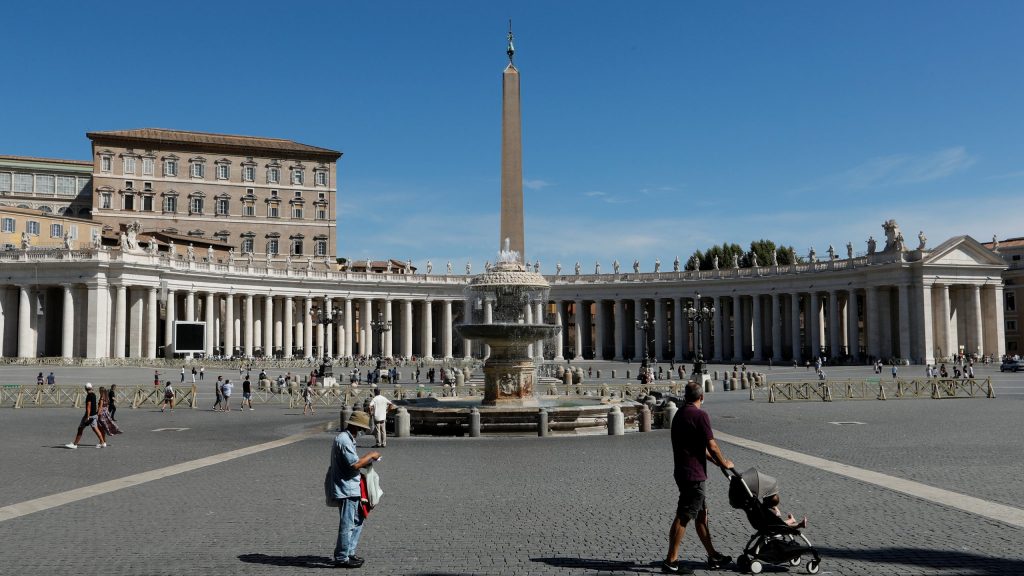In light of the ongoing COVID-19 pandemic and social and environmental crises worldwide, Pope Francis announced he would begin a new series of general audience talks aimed at helping build "the future that we need."
"In the next few weeks, I invite you to tackle together the pressing questions that the pandemic has brought to the fore, social ills above all. And we will do it in the light of the Gospel, of the theological virtues and of the principles of the church's social doctrine," he said Aug. 5 during his weekly general audience.
"We will explore together how our Catholic social tradition can help the human family heal this world that suffers from serious illnesses," the pope said.
The audience, livestreamed from the library of the Apostolic Palace, was the pope's first general audience talk after the appointments were suspended for July, the month the pope's schedule is lightened for a summer break.
He began his talk noting how the pandemic is continuing to bring illness and death to many people and is "causing deep wounds, exposing our vulnerability."
"Many people and many families are living a time of uncertainty because of socio-economic problems, which especially affect the poorest," he said.
By keeping their focus on Christ, Christians can find strength and healing in the Gospel and the virtues of faith, hope and charity, he said.
These are gifts from God "that heal us and that make us healers, gifts that open us to new horizons, even while we are navigating the difficult waters of our time."
Catholics need to renew their experience with the Gospel, which "invites us to assume a creative and renewed spirit," he said. "In this way, we will be able to transform the roots of our physical, spiritual and social infirmities and the destructive practices that separate us from each other, threatening the human family and our planet."
Jesus offers so many examples of healing -- not just physical and individual afflictions, but spiritual, relational and societal ills as well, he said.
As disciples of Jesus, "we can ask ourselves: Today, in what way can we help heal our world?" because his disciples also are called to continue his work of healing and salvation "in a physical, social and spiritual sense."
The church offers the sacraments and concrete charity and care, but it is "not an expert in the prevention or the cure of the pandemic. She helps with the sick, but she is not an expert," the pope said.
Neither does the church give specific socio-political policies because "this is the job of political and social leaders," who, however, can be guided by the light of the Gospel, he added.
Over the centuries, the church has developed many social principles "that can help us move forward in preparing the future that we need."
He said the main principles are: the dignity of the person; the common good; the preferential option for the poor; the universal destination of goods; solidarity; subsidiarity; and care for the planet, "our common home."
"These principles help the leaders, those responsible for society, to foster growth and also, as in the case of the pandemic, the healing of the personal and social fabric," he said.
"It is my desire that everyone reflect and work together, as followers of Jesus who heals, to construct a better world, full of hope for future generations," said Pope Francis.

